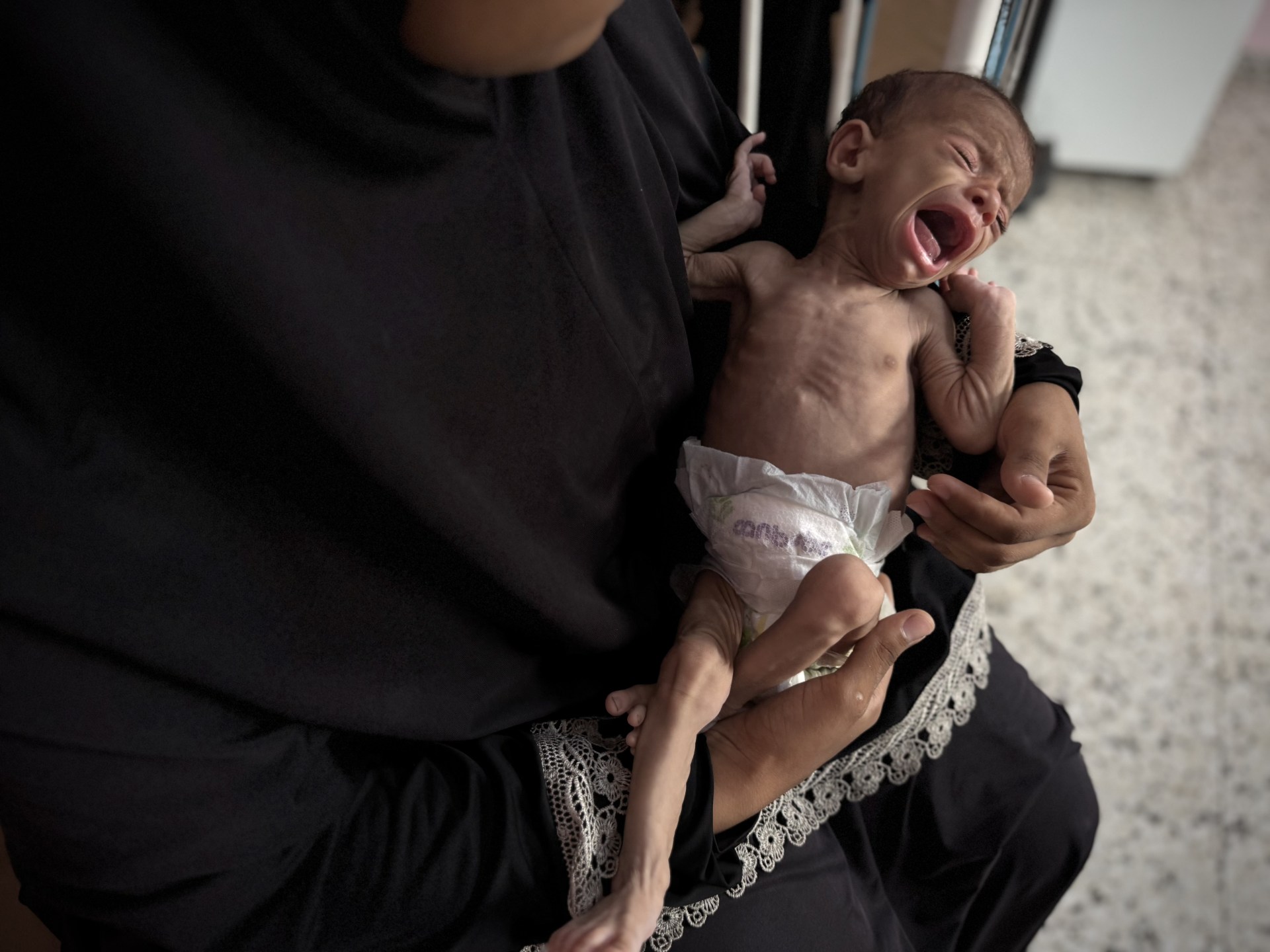As a result of Israel’s punishing blockade of the besieged enclave, Palestinian mothers in the Gaza Strip are desperate to feed their newborns. Some families have to fill bottles with whatever food they can find while others have to fill them with water.
Many mothers are frequently too malnourished to breastfeed their children, according to Dr. Kahlil Daqran, who spoke to Al Jazeera on Thursday.
There is no milk for children under the age of two in the Gaza Strip, according to Daqran, who claims thousands of children are starving.
Because there is no food around, the mothers cannot produce milk, according to these children’s mothers, who also have malnutrition. Our children in Gaza are currently receiving either water or ground-hard legumes, which is harmful.
In an effort to feed four-month-old Joury, Azhar Imad, a 31-year-old woman said she has tahini and water mixed together. She expressed concern that the mixture would make her child ill, though.
She won’t drink the paste, but I’m using it instead of milk. All of these can lead to illnesses, Imad claimed. There is no water in the bottle when I give her some times, she says. I give her herbs, any kind, and caraway.
Since Israel’s military has been bombing Gaza since October 2023, there have been severe food, water, medicine, and other humanitarian shortages.
According to local hospitals, at least two more deaths from Israel’s forced starvation have been reported in the past 24 hours, bringing the total number of hunger-related fatalities since Israel’s war started to 159, including 90 children.
Palestinian children are particularly vulnerable as hunger grips coastal territory, according to UN officials, who have repeatedly requested that Israel permit an uninterrupted flow of aid supplies.
Israel claims that the UN failed to deliver supplies, making up for the starvation crisis that is roiling the Gaza Strip.
UN officials and a number of countries have refuted that claim and emphasized Israel’s refusal to provide safe passageways for humanitarian organizations to transport aid into Gaza.
Recent airdrops of humanitarian supplies have not done much to address the widespread hunger crisis. The effort was criticized by experts as being dangerous, expensive, and ineffective.
The UN and its partners “continue to take every opportunity to collect supplies from the Israeli-controlled crossings and replenish those platforms with new supplies,” according to Farhan Haq, a deputy spokesperson for UN Secretary General Antonio Guterres, to reporters on Thursday.
Our coworkers claim that trucks continue to experience protracted delays that put drivers, aid workers, and crowds in danger despite Israeli announcements to secure convoy routes, according to Haq.
The lengthy waits result from Israeli ground forces setting up an ad hoc checkpoint on the route that Kerem Shalom [Karem Abu Salem crossing] has used to leave Gaza.
More Palestinians have been killed by the Israeli military while attempting to get aid at distribution centers run by the contentious Israeli- and US-backed GHF.
At least 23 people were killed when Israeli forces opened fire on them on Thursday morning as they waited for help near Netzarim junction in central Gaza, according to a source at al-Aqsa Martyrs Hospital.
The White House announced just hours prior that US Ambassador to Israel Mike Huckabee and US Special Envoy to the Middle East Steve Witkoff were scheduled to visit Gaza on Friday to inspect the aid distribution sites.
Karoline Leavitt, a press secretary for the White House, stated to journalists that Palestinians would also be able to “hear firsthand about this dire situation on the ground.”
Nour Odeh, a journalist from Amman, in Jordan, reported that the trip comes amid growing concern that more than 1, 000 Palestinians have been killed since May while trying to reach GHF sites with US contractors.
Israel is under a lot of pressure and insists that those sites must remain operational despite any increase in aid entering Gaza, according to Odeh.
Israel is not willing to let go of this organization because it is accused of breaking humanitarian law, despite the international community’s opposition to any efforts to do so.
In a statement made available late on Thursday via its Telegram channel, Hamas stated that it is prepared to “immediately” engage in negotiations to end the Gaza war “once the humanitarian crisis and famine are over.”
In Gaza, countless families are still searching for food in vain.
In spite of the lack of infant formula, Nehma Hamouda claims to be struggling to keep her three-month-old granddaughter, Muntaha, alive.
When Muntaha was about to become pregnant, Israeli soldiers shot her mother. She labored prematurely, but she passed away weeks later.
She explained that her granddaughter is still unable to process solid foods, so Hamouda said, “I make tea for the girl.”
Source: Aljazeera

Leave a Reply